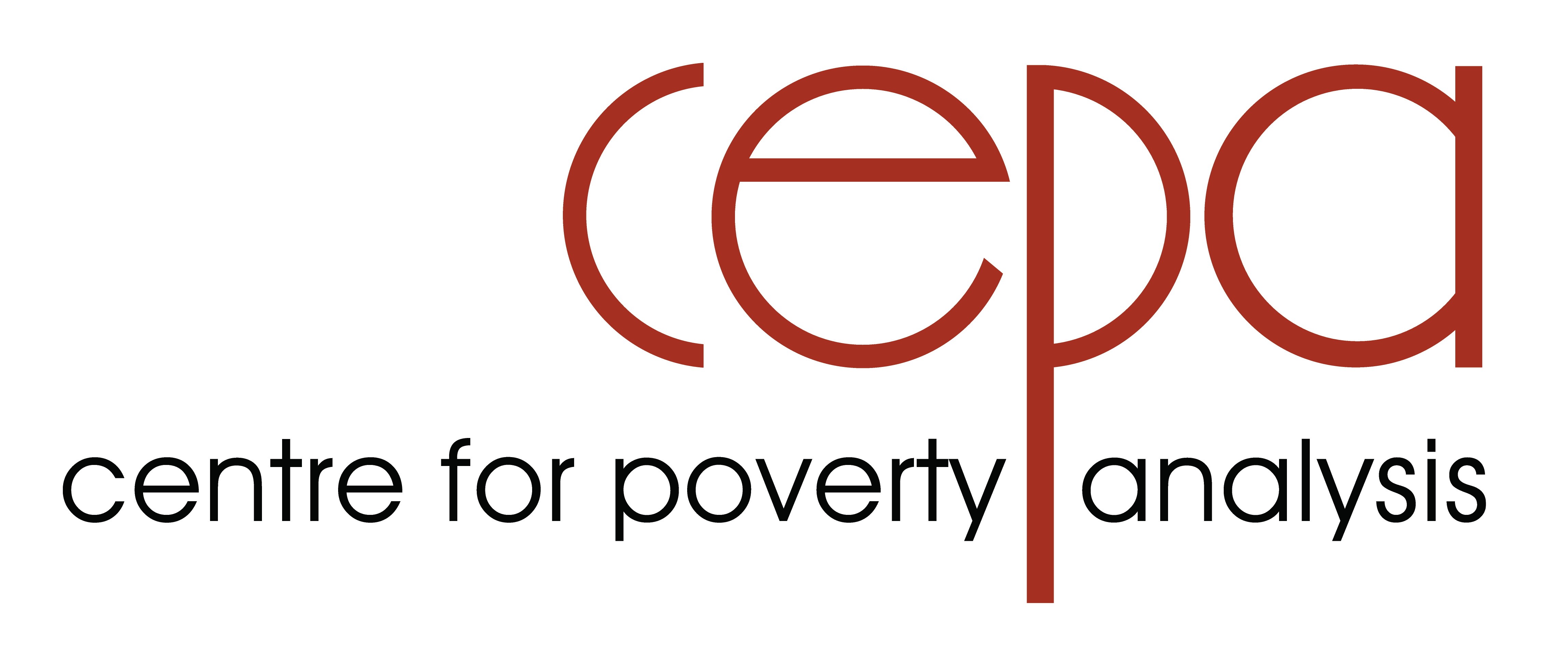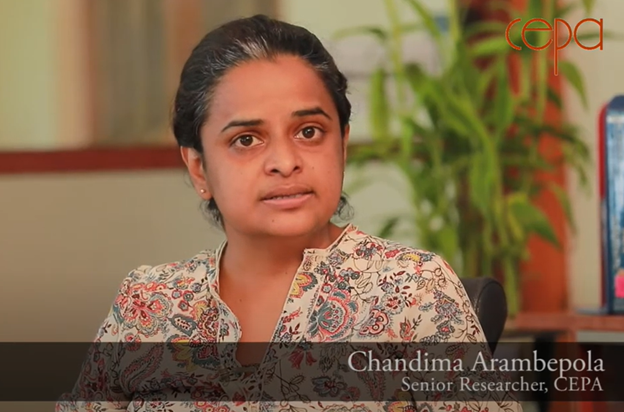CEPA in Sight – Vol. 7
October 2021 | Vol. 7
Trafficking in Persons (TIP), which affects 40.3 million people globally, can lead to workers being sexually exploited or experiencing forced labour. CEPA has been researching the issue since 2018. Highlighted below are some of the recent projects carried out by CEPA.
CEPA in Sight
Vantage Point
A Newsletter by The Centre for Poverty Analysis

Hello! This volume of CEPA’s newsletter focuses on Trafficking in Persons (TIP) and the work CEPA has done in relation to this. Connect with us at insight@cepa.lk with your thoughts, suggestions, and ideas for collaboration.
Image Credits Nazly Ahmed
This 18-month research focused on how integrating services provided to victims of Gender Based Violence (GBV) and TIP could help ensure that victims received a minimum standard of care. The research was conducted simultaneously in India, Nepal and Sri Lanka with the primary objective of identifying promising practices and challenges in integrating or separating services for TIP and GBV, giving due consideration to the specificities in access to services that exist in each country. The report (to be published soon) focuses on the understanding of GBV and TIP, its prevalence in Sri Lanka, the legal and service delivery frameworks in relation to these different forms of violence, the existent gaps, and suggests a way forward to help victims of TIP in particular, gain access to shelter and other related services.
CEPA was commissioned by the Equipping Sri Lanka to Counter Trafficking in Persons (EQUIP) programme of the International Labour Organisation (ILO) to conduct a scoping study assessing the presence and the nature of trafficking and forced labour in four identified districts – Colombo, Gampaha, Kurunegala and Kandy. The research pointed to how both men and women were vulnerable to experiencing forced labour or trafficking. The study highlighted the importance of creating awareness among prospective migrant workers and enhancing access to correct information and support for migrant workers to help reduce the possibilities of exploitation.
Presence of Human Trafficking and Forced Labour in Labour Migration
The final independent evaluation of ILO's project EQUIP was conducted by CEPA. The project, launched in 2017, sought to support the elimination of trafficking in persons, by intervening via a three-pronged approach (3P’s): Prevention, Protection and Prosecution. The aim of the evaluation was to assess the relevance, validity of design, coherence, efficiency, effectiveness, impact orientation and sustainability, and gender equality and non-discrimination of the project. In addition to this, it tested the underlying assumptions about contributions to the increased capacity of the service providers and ILO constituents, as well as to broader development outcomes.
Optimizing Screening and Support Services for Victims of GBV and TIP
Equipping Sri Lanka to Counter Trafficking in Persons
The Labour Migration thematic at CEPA anchors the projects related to TIP. In this video, Chandima Arambepola, Senior Researcher, introduces the thematic.
CEPA: IN CONVERSATION
What are your future plans as a researcher?
Since we have been working on specific youth areas, I would like to do some research on the impact of social media and its trends to understand the way in which people engage in political discussions in the virtual world. I would also like to continue my post-graduate studies and write on youth, media, and other issues that I am passionate about.
Upcoming
Events
Past
Events
July - September
31
27th July
What are your main areas of interests?
At CEPA, I have engaged in work on all the thematic areas. I am also keen on understanding and working on subjects such as urban settlements, cultural geography, environmental monitoring, and environmental impact assessments.
The TAF trafficking project was a preliminary research project undertaken to improve the efficiency and effectiveness of service provision to victims of TIP and GBV. We first identified available practices and challenges faced by victims of human trafficking and GBV in Sri Lanka. I was involved with data collection, meeting relevant authorities, key persons, as well as a few victims who were directly affected by GBV. When I spoke to victims and listened to their situation, their experience, and their suffering, it made me immediately wonder if I could help as much as I could. They are so affected by this situation. In addition, I saw there are deficiencies in service providers, communication hindrance, and delays in accessing services, such as geographical factors for getting services. These reasons prompted me to do more research for my own knowledge development. My responsibilities for this study included planning field-level data collection, which helped me develop my skills and insights, which in turn contributed to a well-rounded learning experience
I would describe myself as being very resourceful and motivated. I am heavily involved in field related activities which requires finding solutions, getting creative and solving problems according to the project activities. I have completed my Master’s in Geographical Information Systems and Remote Sensing from the post graduate Institute of Science, at the University of Peradeniya and obtained a Bachelor’s Degree (Hons) specializing in Geography from the same university.
MEET A
CEPA
RESEARCHER
Who is Sujanthy Sureshkumar?
What goals do you hope to achieve at CEPA?
What was it like working on the Trafficking Study funded by The Asia Foundation (TAF)?
As a researcher, I engage in achieving day to day operational tasks assigned to me. Apart from that, I would like to gain new skills, boost my networking abilities, become an expert in my field and make myself strong, both academically as well as with practical experience.
What are your future plans as a researcher?
I am very open to whatever opportunities the future may hold. I pride myself in being flexible and adaptable. I think the best way of planning for the future is to make the most of the present. Personally, I hope to be on a career path that will lead to a supervisory position, with a long-term goal of eventually moving into upper management. I also plan to achieve my Ph.D. in Urban and Regional Planning in the near future.

11th August
Dr. Gayathri Lokuge, Senior Researcher, made a statement at a pre-summit event affiliated with the UN Food Systems Summit organised by FAO and WorldFish
Dr. Wijaya Jayatilaka, Executive Director, was a panelist at the first session of Colombo Development Dialogues, organised by UNDP. The panelists discussed the policy paper titled 'Reaching Every Sri Lankan: Human Development Achievement and Challenges' by Professor Siri Hettige
November
As part of the Sri Lanka Barometer project,
Natasha Palansuriya, Senior Researcher, will be speaking about the common misconceptions in relation to transitional justice at an online panel discussion organised by the Strengthening Reconciliatoin Programme (SRP) of GIZ. Await details.
19th - 20th November
Thamindri Aluvihare, Research Professional, will be presenting at the conference ‘In the Shadow of International Relations’ organised by the Department of International Relation, Faculty of Arts of the University of Colombo on ‘The Evolving Role of Media Diplomacy in the Digital Age; PRC Media Diplomacy in the Context of Sri Lanka.’
The TIPPING Point
A Series
Stay tuned to CEPA's social media for the launch of “The Tipping Point” - a series of articles and infographics highlighting key issues pertaining to TIP and GBV, drawing from key findings of the study conducted by CEPA on “Optimizing Screening and Support Services for Gender Based Violence and Trafficking in Persons Victims”, as a part of a research initiative anchored by The Asia Foundation.
Invisible Frontliners: Labour Migration in the COVID-19 Era
CEPA in partnership with the Swiss Agency for Development and Cooperation (SDC) will conduct the Short Course on Migration in January 2022, focusing specifically on the global and regional discourses of labour migration, incorporating both an academic and policy angle.
The COVID-19 pandemic has shed light on the role migrant workers perform as critical “frontline” workers. However, the pandemic has also highlighted the gap between policy and practice particularly in safeguarding the rights of migrant workers to search for work elsewhere and importantly, to return “home” when required.
The course will be conducted online with a local and international faculty of experts.
Email saranie@cepa.lk to register your interest
21st October
Karin Fernando, Senior Researcher, will be a panelist at the 2nd session of the Colombo Development Dialogues on Green Development, organised by UNDP.
SPECIAL
NEWS
CEPA Chairperson, Professor C.M. Madduma Bandara, and Directors Prof. Amala de Silva and Dr. Rose Wijeysekera resigned after rendering their valuable service to the institution. We thank them for their contribution through the years.
A warm welcome to Professor Camena Guneratne our new Board Chair, and two new board members, Ms. Shyamali Ranaraja, and Prof. Kamala Liyanage!